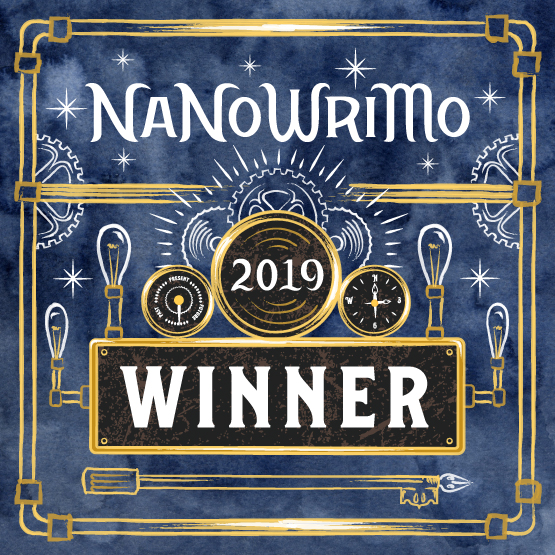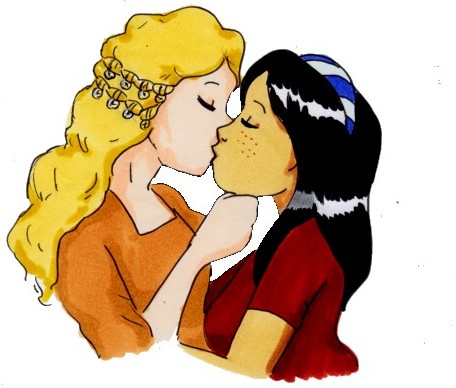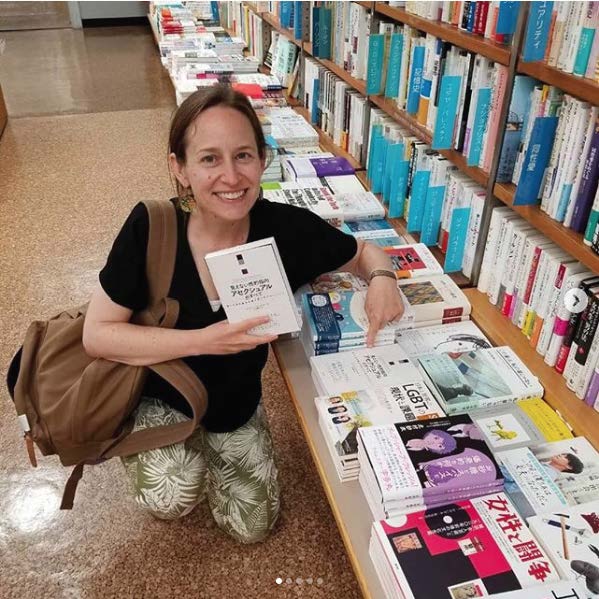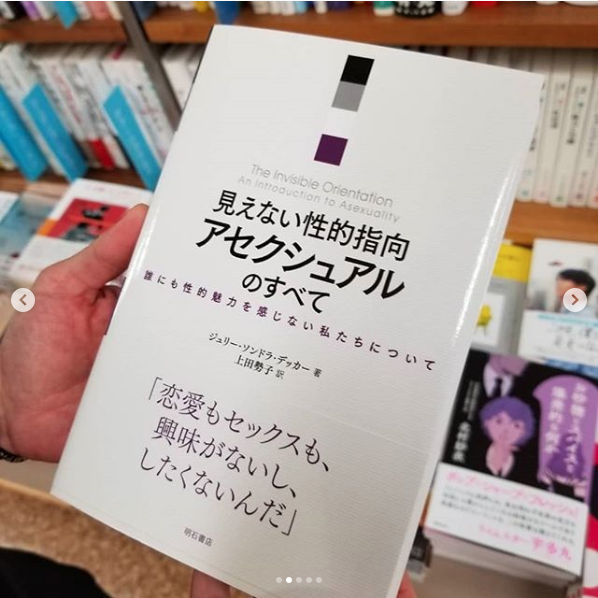I finished NaNoWriMo 2019 with 50,768 words this month (and making the book In Bloom about 101,600 words total). I don’t plan to finish this book within NaNoWriMo–I’ll have to complete it and edit it through other means.
Author Archives: Julie Sondra
Character Sketch: In Bloom
NaNoWriMo 2019
Guess what? I’m doing NaNoWriMo again.
Yeah, the writing program I once used to talk about never doing, but consented to try in 2018, and now am doing again in 2019.
I decided to continue 2018’s book! Because of course I’m a blathery weirdo and I’m sure I can get another 50,000 words out of this thing.
Wish me luck with another installment of working on In Bloom!
An Ace Evening with Swankivy
I’m doing a live YouTube event (my first time!) to celebrate Asexual Awareness Week. I’ll just be sitting down to an evening with my webcam and I’ll start by sharing some discussions of how media handles asexuality, good or bad.
Subscribers and interested parties can chime in live in the attached chat, and if appropriate, I will address whatever they’d like to talk about. It’s a chance to talk to a pretty seasoned ace activist about subjects that might not be covered all that commonly, but it’s also fine if the talks devolve a little into other things. I’ll try to keep it mostly on topic but there’s no telling what will happen.
You can sign up for a reminder and tune in 8 PM Eastern on Friday, October 25. The finished video will appear here when the event is over.
Japanese Edition: The Invisible Orientation
The Invisible Orientation is now available in a Japanese translation.
This is a translation of the original material and is still a Western conception of the culture and concepts of asexuality. Its content has not been localized.
But it is available in bookstores and through its Japanese Amazon page.
My sister, whose husband is from Japan and has relatives there, recently found the book in a bookstore and bought a copy. Here it is in the wild, with photos from her Instagram.
Spoke at WIND
I was asked to give a talk about Pitch Wars and approaching traditional publication at the University of South Florida as part of one of their camps for young writers. I spoke to a group of 16- to 25-year-olds for about an hour in an informal presentation about the whys, hows, and whethers of agents and publishing. This was in association with the youth writing workshop WIND.
The group was small and attentive and someone brought their cat.
There weren’t too many questions and I didn’t get into any real dialogues with them or anything, but I felt like the presentation was probably useful for some of them. (I saw a few taking some notes.) I mostly went over how to make choices regarding traditional versus self-publishing, small publishers versus big ones, agents versus no agents, and then some nuts and bolts about how and why to write a query letter and approach agents, with some other info on what happens next and what to expect. It was fun to talk about this stuff again as I’ve not been involved in Pitch Wars for some time and my own writing-related stuff has really gotten buried under other life stuff.
I was able to go out to dinner afterwards with the organizer, Eric, and we had some nice Thai food and great conversation about short stories, publishing, science fiction, and being authors. Great time, I’d do it again.
Spoke at “Unthinking Sex, Imagining Asexuality” Book Celebration
I was honored to be one of the guest authors (and the only author appearing by Skype!) at this spring’s “Unthinking Sex, Imagining Asexuality” book celebration at Little Sister’s Book and Art Emporium.
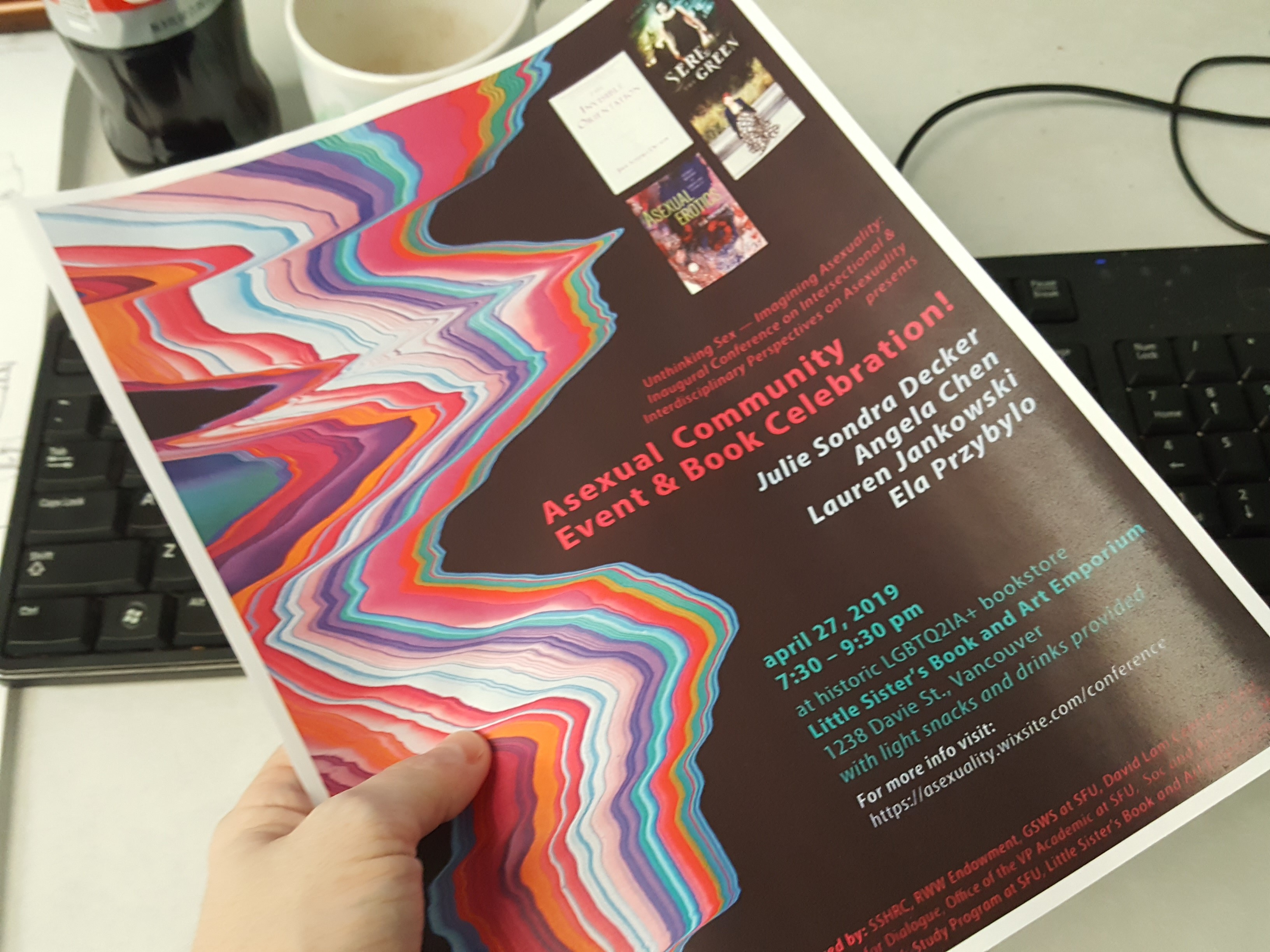
With other ace-spectrum authors Angela Chen, Lauren Jankowski, and Ela Przybylo, I discussed my book, its publication, its impact, and publishing in general.
Unfortunately my Skype connection was one of the worst I’ve had and I could not hear the other authors reliably. I couldn’t tell what they were saying enough of the time to really feel involved in the conversation, but sometimes I did get to hear a string of discussion that didn’t get interrupted, and it was a blast. I really wish I had been there in person, but I guess that’s what I get for trying to “appear” in another country an entire continent away, huh? My appearance ended abruptly when my connection shattered for good.
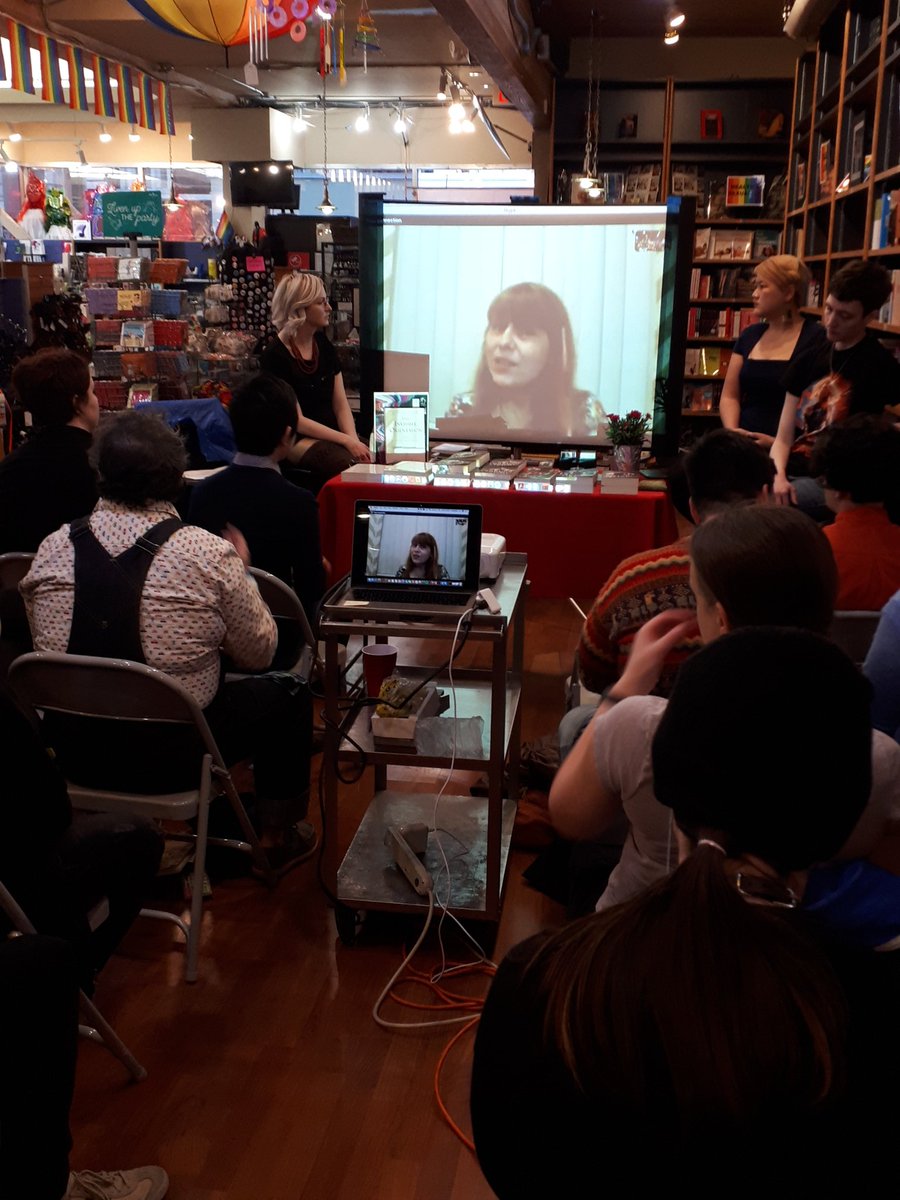
It is SO wonderful to know that asexuality and aromanticism are subjects of enough interest that we have MULTIPLE authors writing from MULTIPLE perspectives about MULTIPLE experiences of our orientations, and even more people out there wanting our words. It is so mind-blowing to remember that ten years ago the idea of an asexual or aromantic authors’ panel would have been a fantasy.
Now it’s a reality.
Upcoming Appearance: “Unthinking Sex, Imagining Asexuality”
For anyone who might be interested, I’ll be appearing through Skype at an event called “Unthinking Sex, Imagining Asexuality” as one member of a book panel at Little Sister’s Book and Art Emporium, April 27, 2019, 7:30 PM Pacific Standard Time. This is in Vancouver, British Columbia, Canada.
It was not practical for me to make the trip this year, so I’ll only be there virtually, discussing my book in the distinguished company of other asexuality authors Ela Przybylo, Lauren Jankowski, and Angel Chen.
My book will be available for purchase during and after the event.
Interview: Smash Pages
I’m used to being interviewed about asexuality, but this time someone who became aware of my work through The Invisible Orientation ended up reaching out to me for an interview regarding my webcomics. It was a nice change to discuss something other than asexuality.
If you’d like some insight into my webcomics, my process, my thoughts on non-traditional media, my techniques, and my philosophy regarding art, I am linking the interview with Alex Dueben below.
Smash Pages Q&A: Julie Sondra Decker
Finished NaNoWriMo 2018
Wow! I knew I would be able to do 50,000 words in 30 days because typically I write faster than that, but this was a really great experience keeping me writing every day and keeping the pace consistent. I’m pleased to say my NaNo novel, In Bloom, hit 50,615 words on the last day of the event.
And I am a winner!
Yes I bought a shirt.
The book is not done of course–it’s not even close to being drafted, much less edited–but this was a great experience and I’d do it again.

